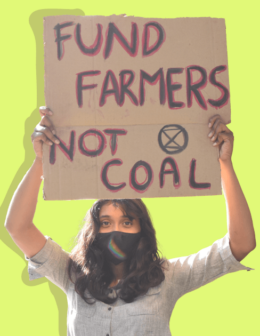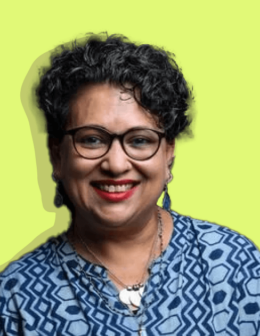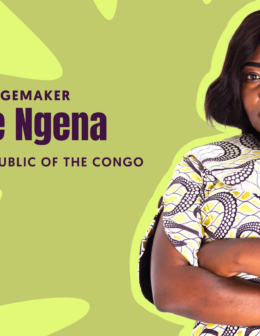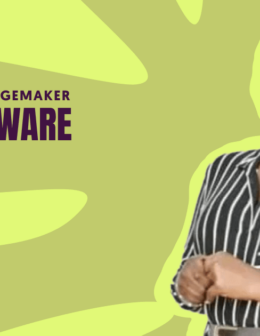Gender Justice Movement
Feminist Action for Climate Justice in the Pacific
- Climate Justice
- Gender Justice
- Climate Justice
- Gender Justice
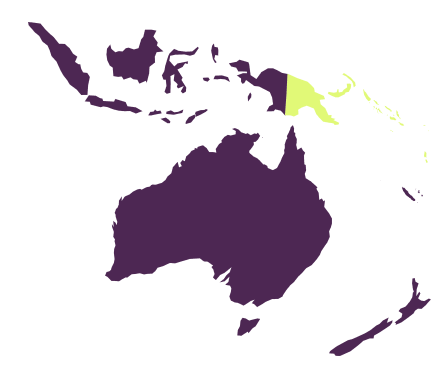
Pacific Islands
While women and girls in the Pacific Islands are disproportionally impacted by climate change, they are also leading innovative and vital grassroots solutions.
Photo (above): Shifting the Power Coalition, Fiji
Communities in the Pacific Islands are deeply impacted by the ongoing climate crisis despite being among the lowest contributors to climate change in the world, producing less than 1 percent of total global greenhouse emissions.1
A recent United Nations report on climate change warned that small islands “present the most urgent need” but face barriers including lack of investment. Without urgent and immediate action, the climate crisis and the severity and frequency of extreme weather events is only expected to increase.
We are in a climate crisis, and it is not gender neutral.Latanya Mapp FrettGlobal Fund for Women President and CEO
The impact of this is not equally felt. When disasters such as floods, hurricanes, and cyclones strike, women are more likely to die – in some circumstances, twice as likely. If they survive, displacement brings heightened risks of sexual violence and other human rights abuses and violations. And those living at the intersection of multiple forms of discrimination, such as Black women; LGBTQI+ individuals; people living with disabilities; young people; rural community members; and many more historically marginalized groups face compounding risks, yet are too often ignored or shut out of planning for climate disaster and in mitigation and recovery efforts.
Women’s knowledge and deep reliance on natural resources and a healthy environment remains overlooked and undervalued. Moreover, feminist movements for climate justice are severely under-resourced in regions that are most vulnerable to climate change, adding another layer of vulnerability to the lives of the women on the frontlines of the climate crisis in these regions.
Feminist and grassroots organizations across the Pacific Islands have been organizing and advocating around climate change for decades, raising the alarm for island nations around the world and offering concrete solutions. In local, national, and global spaces, Pacific Islanders are leading and innovating - from designing women-led disaster preparedness systems to pushing global leaders to establish a Loss and Damage fund.
Pacific communities face unique challenges, and we Pacific women know the unique solutions. No more telling us what we need. It’s time to listen.Sharon Bhangwan RollsShifting the Power Coalition Technical Adviser
Our model involves listening to and learning from grassroots leaders, supporting them to determine their key movement priorities, and providing grants and holistic support to these movement-informed solutions in regions that are worst hit by the climate crisis. Through this model, Global Fund for Women partnered with Shifting the Power Coalition to radically reimagine what movement led support for climate justice in the Pacific Islands could look like. From this process emerged an exciting, intersectional alliance of self-led feminist organizations called the Pacific Islands Feminist Alliance for Climate Justice (PIFA4CJ). Made up of seven organizations, drawing in experience from youth movements, disability rights movements, LGBTQIA movements, and disaster preparedness and response work, PIFA4CJ leads a participatory grantmaking program to resource, connect, and amplify feminist climate action across the region. The grantmaking priorities defined by the group take a holistic view of the climate crisis, recognizing that the impacts of climate change on the lives of Pacific Island women and gender expansive people go well beyond headlines. PIFA4CJ grants protect watersheds, document women’s traditional and ancestral knowledge, establish community planning mechanisms for climate emergencies, and build the capacity of feminist organizations to respond to the urgency of community needs in the face of increasing climate impacts.
Rich countries, including the United States, Canada, Japan and much of western Europe are responsible for
50%
of all the planet-warming greenhouse gases released from fossil fuels and industry over the past 170 years.
Source: The World Bank
Only 1.5% of overseas climate-related development assistance identified gender equality as a primary objective. Of this aid, only
0.2%
reaches women-led and women’s organizations.
Source: Oxfam and United Nations
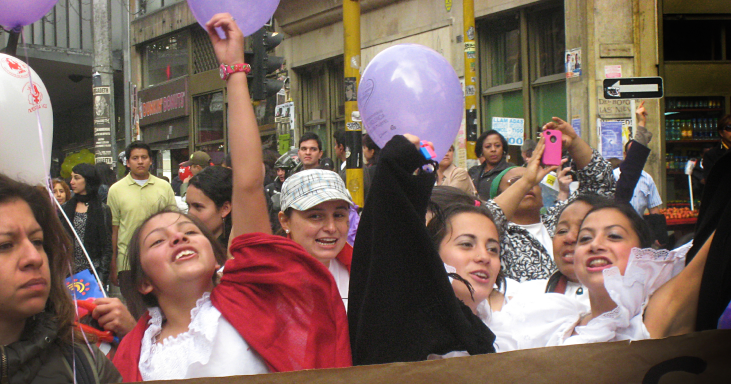
Tell us about your experience
Far too often, women's efforts around the world are not heard. Let's amplify our stories and recognize each other's work.
